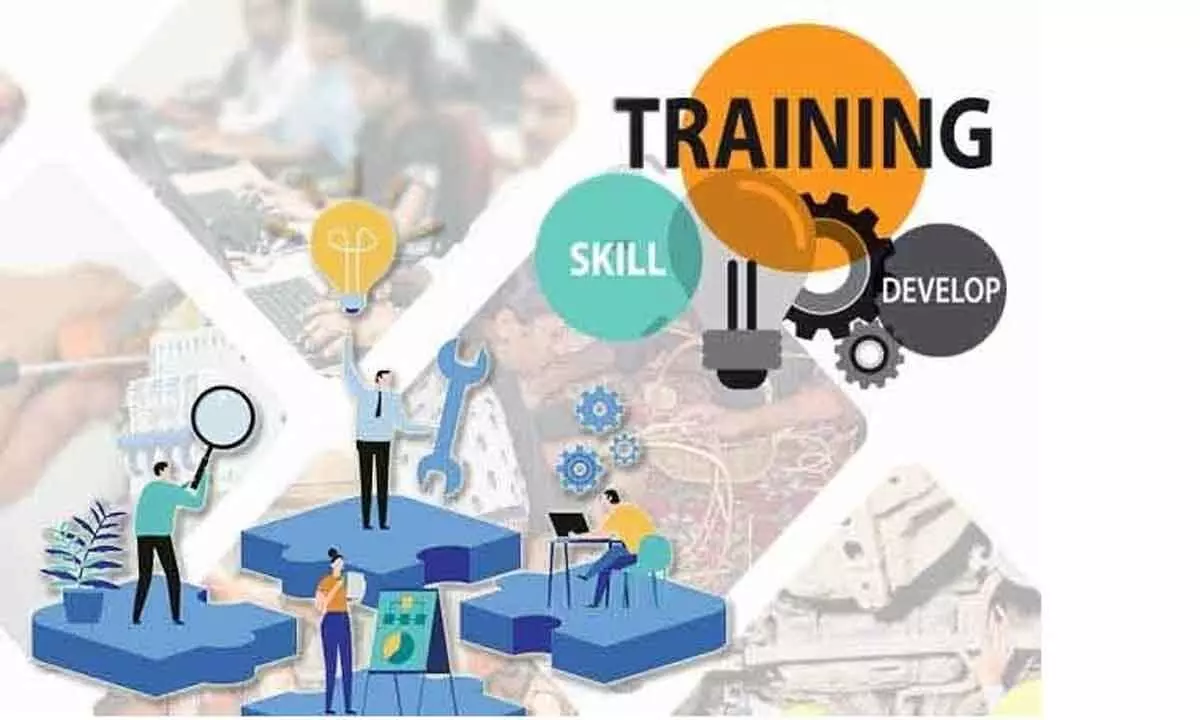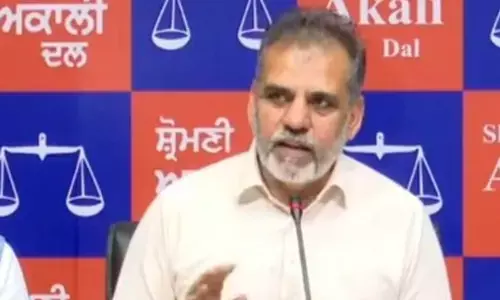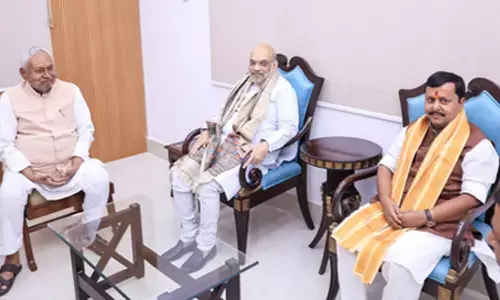Plans afoot for skill development in TS

The government has made its intent clear that the focus will be on policymaking as well as implementation mechanisms that aim at empowering youth and making them employable, both domestically and globally. State departments dealing with education, welfare residential schools, labour and employment, and health will closely work with the center.
Even as the new Congress Government has made 30,000 appointments during the early years of governance, lakhs of candidates pin their hopes on government recruitments to follow. The Revanth Reddy government has unveiled its plan for skilling Telangana, which, he said, would compete not only with other states in the country but also with other countries in making strides in the industry and service sectors with the active support of industrial giants Tata, Mahindra, and Century. To give impetus to this, the government has established the Jyotiba Phule Policy Studies and Research on Social Justice and Empowerment Centre, an apex council to be headed by the Chief Minister, with eminent personalities from all walks of life as members. Also, the government has made its intent clear that the focus will be on policymaking as well as implementation mechanisms that aim at empowering youth and making them employable, both domestically and globally. State departments dealing with education, welfare residential schools, labour and employment, and health will closely work with the center.
The Chief Minister suggested to the representatives of the Tata company to introduce new courses that help to provide instant employment opportunities and also promote entrepreneurship among the youth by setting up their own industries. The Chief Minister said 10 skill universities would be set up by Tata, Mahindra, and Century, for which the state government will allot land. “They design the curriculum and the state will monitor admissions and other regulatory issues. The revolutionary change will be the grant of a degree for skill-based courses, which, hitherto, were treated as diploma courses. Pass-outs can appear for any competitive exam or settle down in a skill-based job,” the Chief Minister said, adding that the availability of skilled professionals would prove an advantage in attracting industries to the state.
Disturbing picture
While these are welcome initiatives, the Annual Status of Education Report (ASER) Survey-2023 presents a disturbing picture as 18 percent of the boys do not want to work in the country as they wish to seek greener pastures elsewhere, while the figure is only 2.1 percent for both boys and girls across the country echoing similar ideas. The report says that the figure of 18 percent youth not prepared to work is the highest number in the country as per the NGO Pratham’s annual survey in Khammam district. Telangana, the youngest state, which was formed in June 2014 after a protracted movement for its own water, resources, and jobs, has the highest number of youth in the country, while India is home to a fifth of the world’s youth and has the largest young workforce. It is imperative that the aspirations and ambitions of this young generation be viewed from the prism of economic, social, technological, and ecological angles. Observers point out that there are few takers from the educated segment who would be willing to take up jobs in the informal/unorganized sector in Telangana which is populated by migrant workers from different parts of the State.
Lessons for Osmania
What are the lessons for Osmania University, catering to nearly three lakh students in its affiliated constituent and campus colleges? The social composition of students, especially on the campus, mostly hails from rural backgrounds, with a sprinkling of them from the urban milieu. Interacting with job aspirants, Human Resource professionals, recruiters, top management executives as the founding director of the Human Capital Development Centre (HCDC) serving as a recruitment and training platform, there are certain facets that have to be factored in the shifting sands of employment.
First Job
Several job aspirants interviewed during the recruitment process confide that the jobs they take up initially are stepping stones to their careers. It is a transition job to earn a salary so that they can support themselves, their aspirations, and their families even as they focus on long-term success for themselves. Financial independence empowers them to make independent decisions, earns them the respect and trust of not only their family members but also of the community in which they live. Picking up skills in the workplace and monitoring job market trends to align themselves with the industry are not uncommon among these youngsters. Also, another discerning trend among the job aspirants is that they prefer to take up jobs closer to their native places, as emerged through interviews with job aspirants and company executives of pharma firms. Migrating to big cities is often avoided, as much of their income would go toward meeting everyday needs, leaving little for savings and investing in the future.
Dichotomy
There is a clear dichotomy of choices between urban and rural youth. Young people, hailing from rural pockets and Osmania University has a sizeable number, in their twenties, are fixated on studying for government jobs and hope to land one, even if it means a long wait. But urban youth, with minimum communication skills, see opportunities in the private sector where their seniors and peers work. Also, there is a difference in choice—whether one would interact with machines and computers or jobs involving human interaction. Youngsters attach a certain amount of dignity to working on a computer. Access to technology provides an opportunity for youth to learn and update their skills, which would otherwise be difficult to comprehend. However, a large proportion of youth remain digitally unconnected and do not have access to job opportunities. As opposed to working with machines, working in a physical space, this is not considered aspirational by a section of the youth, though several sectors offer jobs involving human interaction. The latter calls for good communication skills, which are lacking in several youngsters, especially those accessing higher education and those hailing from rural areas.
Gig Economy
There is a lack of clarity on whether young people are embracing the gig economy. Post-COVID, the gig economy has positioned and sold to young people an opportunity to be micro-entrepreneurs—having their own businesses and the flexibility and ability to earn a fair amount if they have sound interpersonal skills and fairly decent digital skills. It is positioned as an aspirational job where youngsters need not work under any boss and can work at their own will. Most youngsters are lured by the high income numbers they are shown. But with time and algorithmic control, the income and quality of life decline steadily, realisation dawns on them as they witness downslides, and these roles are no longer the first choice.
The Government can ill afford to ignore these pointers from the ground. Instead, it can address these dimensions in the larger interest of the youth
(The writer is former Head of the Department of Communication and Journalism and former Dean, Faculty of Social Sciences, Osmania University)










